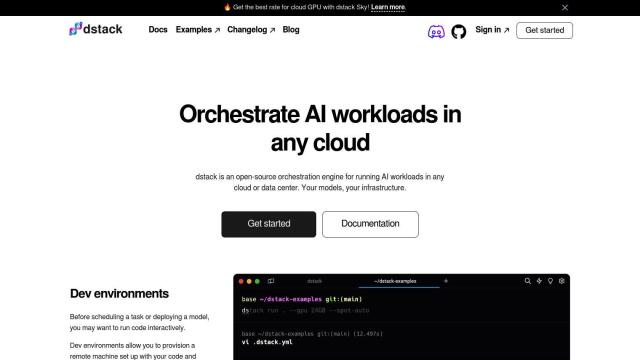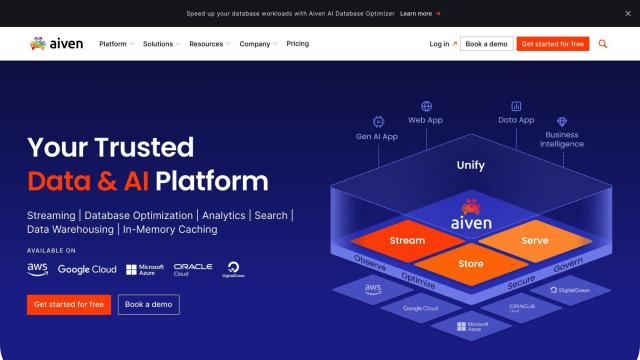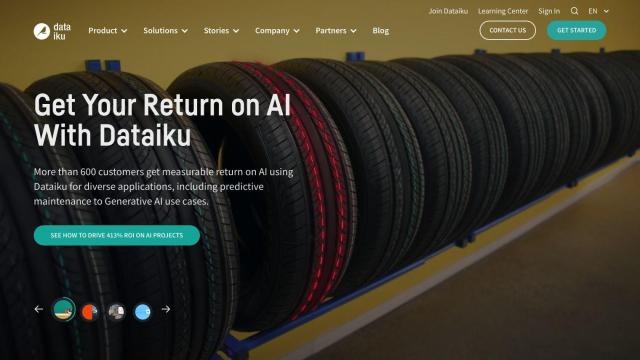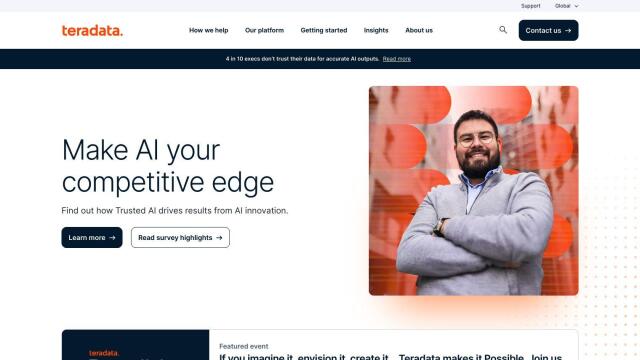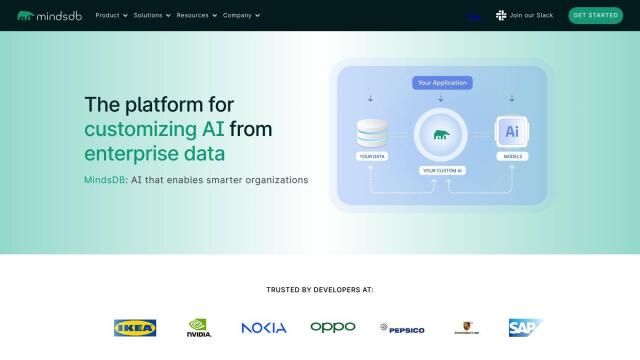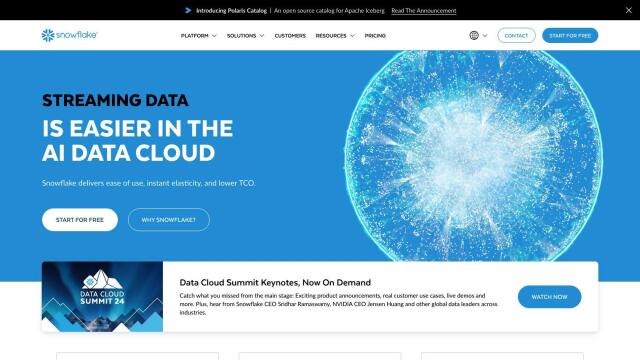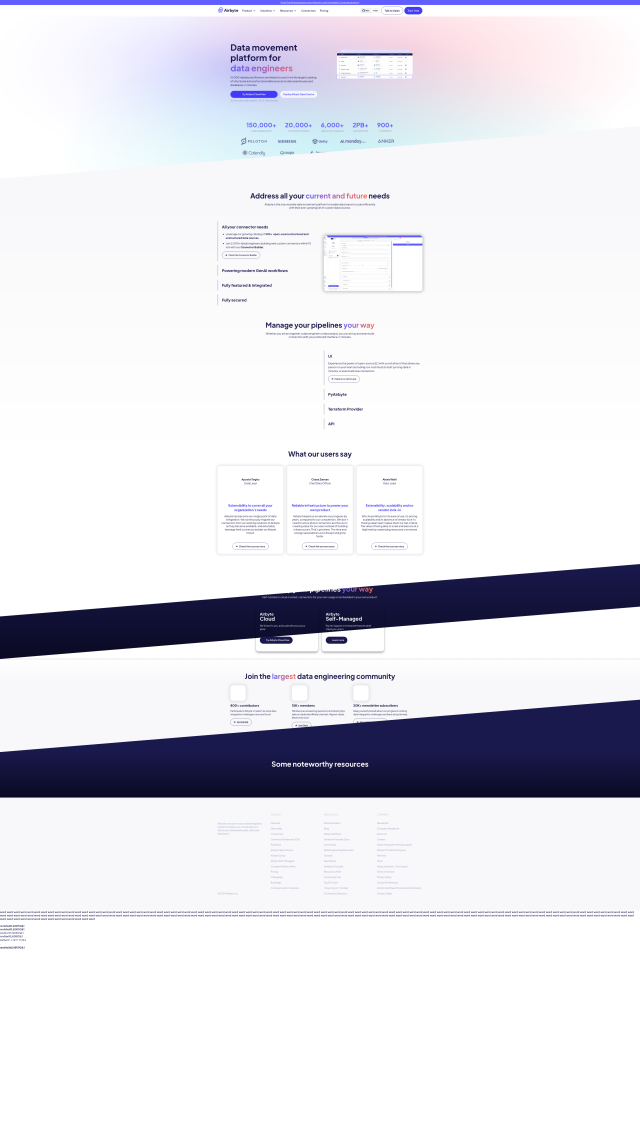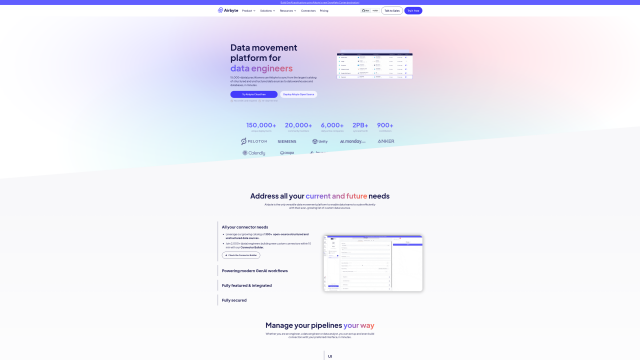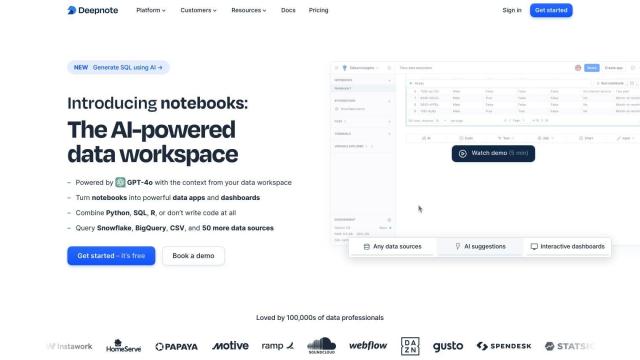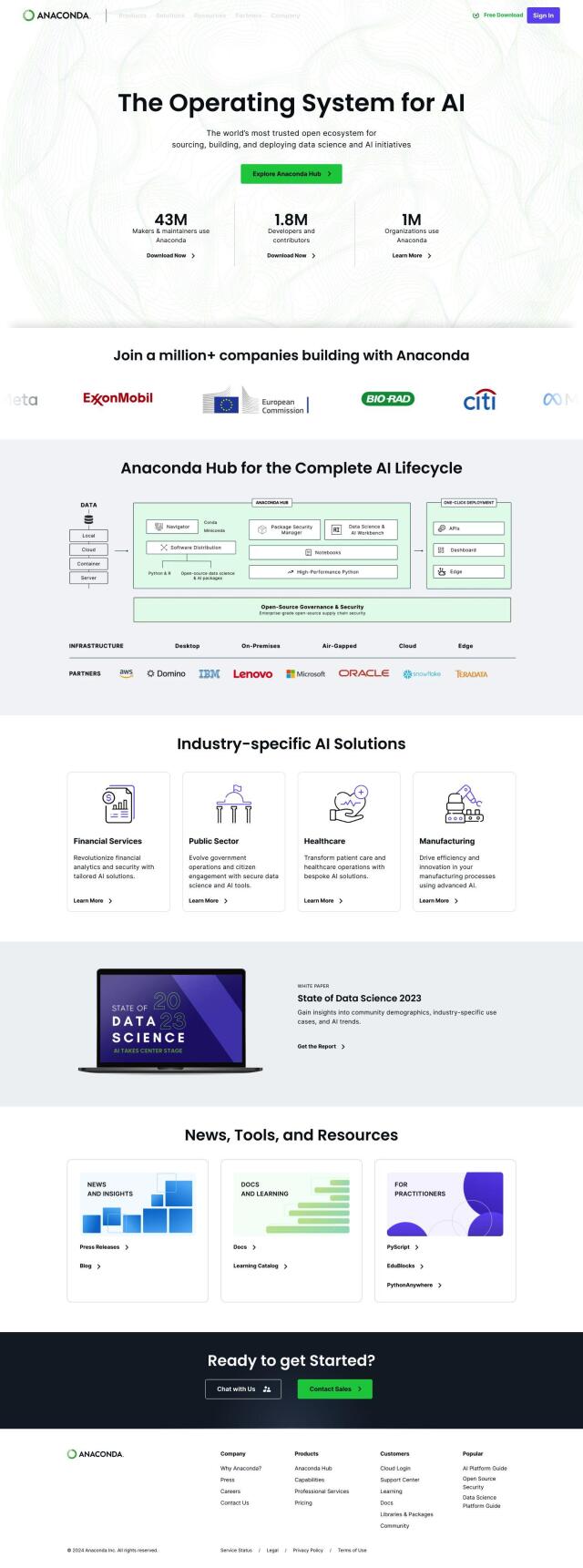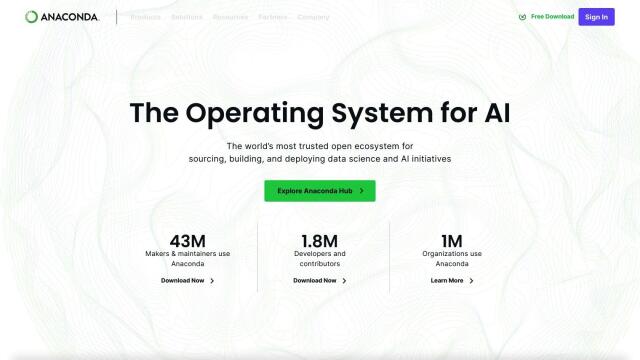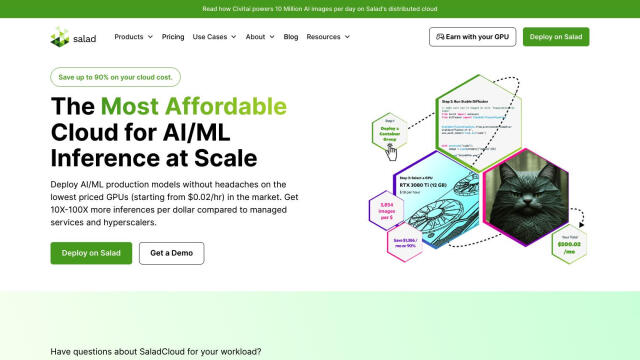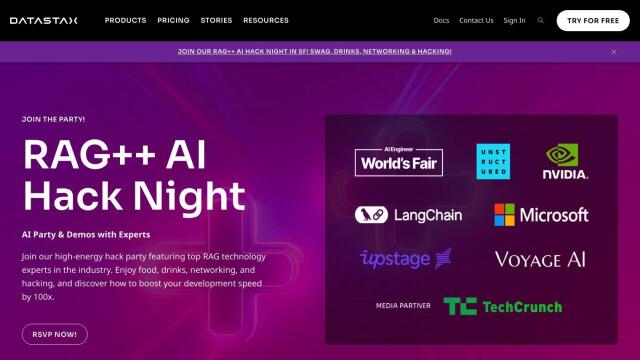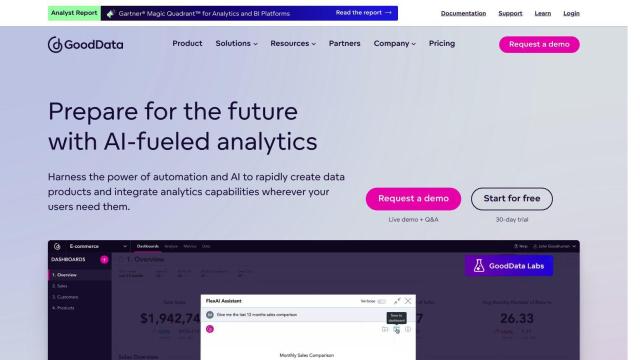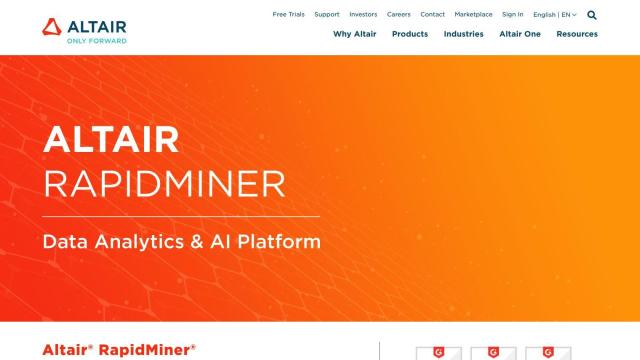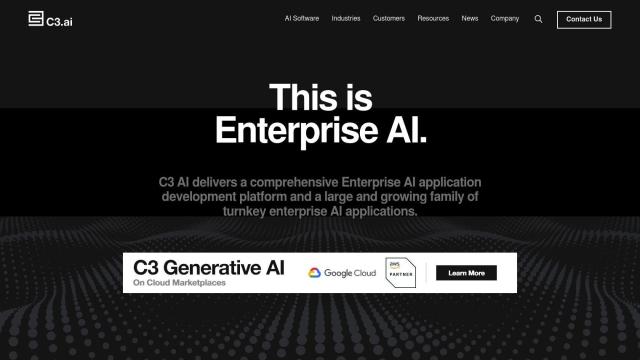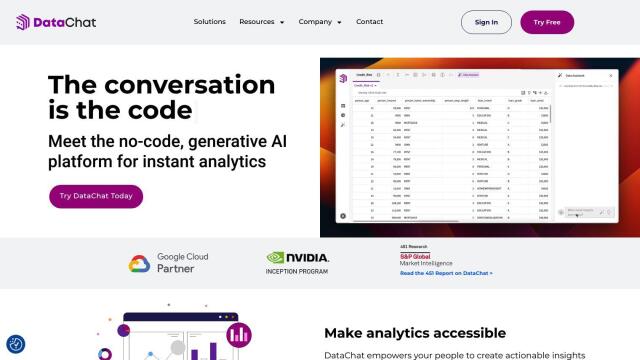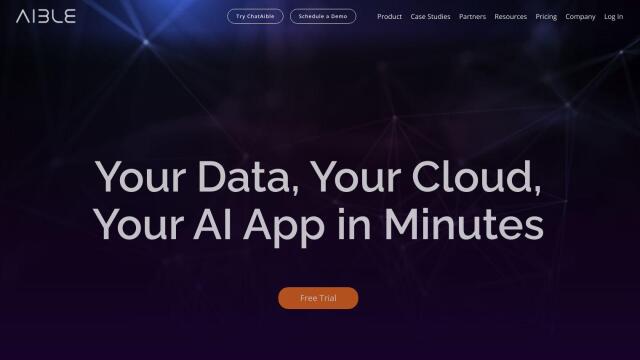Question: I need a scalable architecture for building data apps that can be easily integrated with cloud infrastructure services like AWS, Azure, or GCP.

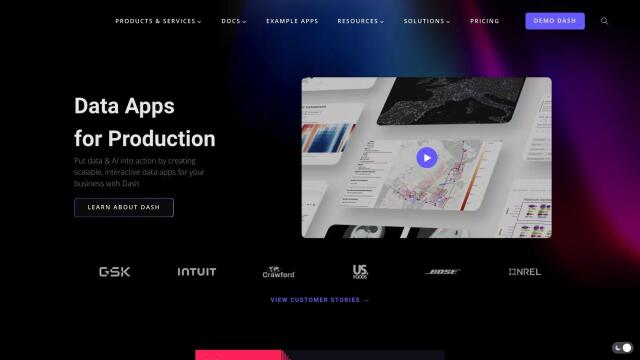
Dash
If you're looking for a scalable architecture for building data apps that can be easily integrated with cloud infrastructure services like AWS, Azure, or GCP, Dash is a great option. This Python library is designed for building interactive data applications that scale. It features a simple installation process, one-click deployment, and a scalable architecture that can be installed on any cloud VPC. Dash also offers low-code development, AI and ML integration, and the ability to build AI and ML-powered apps, making it well-suited for data scientists and engineers.


Anyscale
Another strong candidate is Anyscale, a platform for developing, deploying, and scaling AI applications. It offers unmatched performance and efficiency with features like workload scheduling, cloud flexibility across multiple clouds, smart instance management, and heterogeneous node control. Anyscale supports a wide range of AI models and includes native integrations with popular IDEs, persisted storage, and Git integration, making it an excellent choice for companies looking to optimize resource utilization and save on costs.

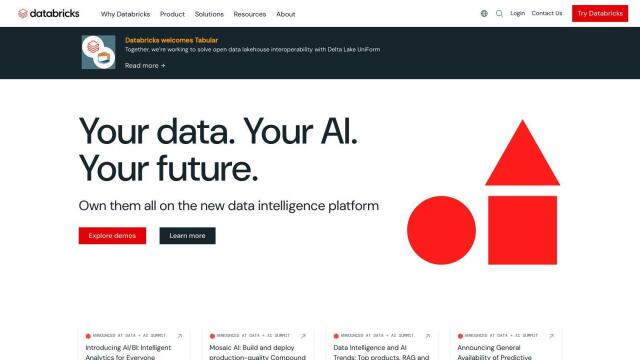
Databricks
For a data intelligence platform that combines generative AI, Databricks is a notable choice. It allows users to build, deploy, and operate AI applications directly on their data while maintaining control and privacy. Databricks supports a wide range of tools and integrations, including ETL, data ingestion, business intelligence, and AI, and is built on a lakehouse architecture for scalable and unified data management. This platform is designed to democratize insights through natural language and provide cost-effective operations.

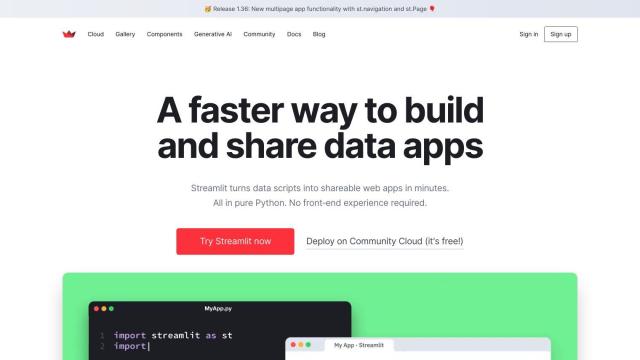
Streamlit
Lastly, Streamlit offers an open-source Python framework for building interactive data apps without front-end expertise. It supports a broad range of categories including data visualization, geography, finance, and more, and integrates with many tools like Pandas and Vega-Lite. Streamlit apps can be deployed instantly, either locally or through its Community Cloud, making it a flexible and accessible option for data scientists and AI/ML engineers.

